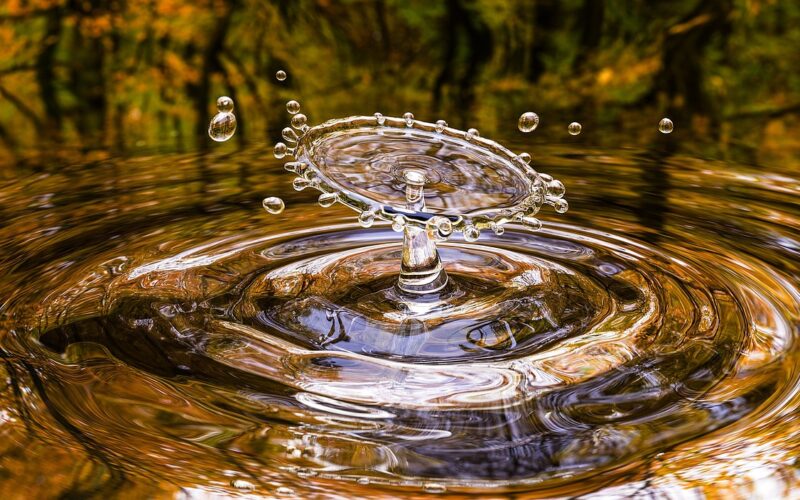Domestic grey water systems are becoming increasingly popular as we seek ways to reduce our water consumption and conserve resources. These systems collect water from sources such as sinks, showers, and washing machines, which is then filtered and reused for non-potable purposes such as watering plants or flushing toilets.
The filtration process removes debris and contaminants, leaving behind clean water that can be safely reused. There are several different types of filtration systems available, including physical, chemical, and biological processes.
Once the water has been filtered, it can be used for a range of applications in and around the home, helping to reduce our reliance on fresh water sources and promote sustainability.
Domestic grey water systems
A domestic grey water system is a sustainable solution that can allow you to reuse water in your own home.
Grey water is water that has been used in sinks, showers, or washing machines, but doesn't contain waste from toilets. This water can be collected and treated using various filtration systems to make it safe for household use again.
The treated grey water can be used for irrigating plants, flushing toilets, or even for washing clothes. By implementing a domestic grey water system, you can reduce your water consumption and help protect the environment.
It's a simple yet effective solution that can make a big difference in water conservation.
Types of filtration media
Grey water systems are a popular and sustainable way to conserve water and reduce wastage.
One of the critical components of these systems is water filtration media.
Filtration media such as silica sand, recycled glass, and activated carbon can effectively remove impurities from grey water. Silica sand, for instance, works best in removing larger particles, while recycled glass is ideal for filtering out smaller impurities.
However, homeowners and builders alike need to be careful when selecting the right water filtration media for their grey water system. It's essential to work with a reliable silica sand supplier for quality control and ensure long-lasting, effective water filtration.
Using the right filtration media can significantly enhance the efficiency of grey water systems, leading to a greener and healthier environment.
Installing a domestic grey water system
Installing a domestic grey water system can be a cost-effective and environmentally-friendly choice for homeowners.
By reusing wastewater from activities such as laundry, dishwashing, and showering, households can reduce their water consumption and ultimately save money on their water bills.
Not only does this help to conserve one of our planet's most precious resources, it also reduces the amount of wastewater that needs to be processed and treated by local authorities.
Additionally, grey water can be used to irrigate lawns and gardens, providing a natural source of nutrients to plants and improving soil quality.
Overall, installing a domestic grey water system is a smart way to both save money and do your part in protecting the environment.
Common Uses for filtered grey water
Filtered grey water, also known as reclaimed water, is wastewater that has been treated and purified for reuse.
The process of filtering grey water involves removing solid debris, contaminants and bacteria, leaving behind a clean, odourless and clear water.
While grey water is not suitable for drinking, it can be used for a variety of purposes such as irrigation, flushing toilets, and even washing clothes. Using grey water can help conserve freshwater, reduce water bills, and decrease the amount of wastewater that is released into the environment.
With the right treatment and filtration system, grey water can be a valuable resource that benefits both your wallet and the planet.
Guidelines
If you're looking to reduce your water usage and save some money on your water bill, installing a domestic grey water system could be a great option for you.
Grey water is wastewater that comes from sources such as sinks, showers, and washing machines. By installing a grey water system, you can recycle this water and use it for things like watering your garden or flushing your toilet.
However, it's important to follow some guidelines to make sure your grey water system is installed correctly and safely. You should ensure that you use non-toxic cleaning products, avoid using grey water for anything that will come into contact with humans or pets, and have a professional plumber install the system.
With these guidelines in mind, you can enjoy the benefits of recycled water and a more eco-friendly home.
Worth the hassle?
A grey water system can be a valuable addition to any household, but it is important to weigh the benefits against the initial effort and ongoing maintenance.
Grey water includes any wastewater from household activities such as laundry, dishes, and showering. A grey water system recycles this water for use in non-potable systems, such as toilet flushing or landscape irrigation. The advantages of this system include conserving water, reducing water bills, and lessening the strain on municipal wastewater treatment plants.
However, it is important to consider the installation costs, such as plumbing modifications and permit requirements, as well as the ongoing maintenance to ensure a safe and effective system.
Ultimately, whether a grey water system is worth the hassle will depend on individual factors such as location, water use, and sustainability goals.









